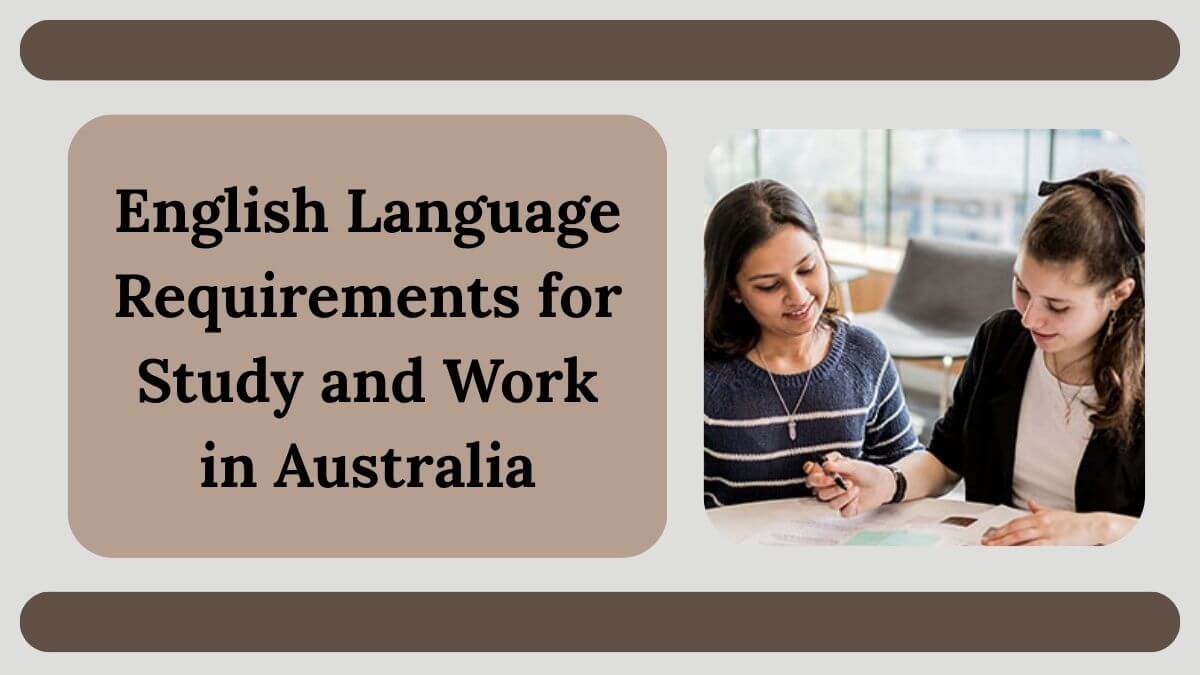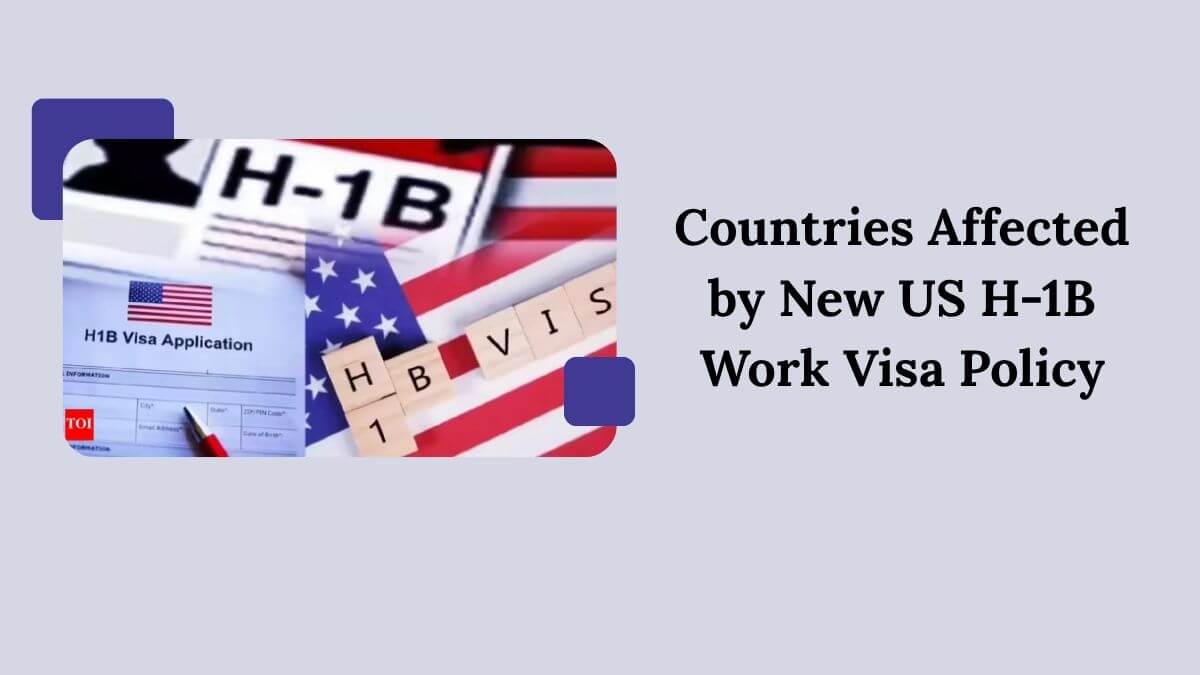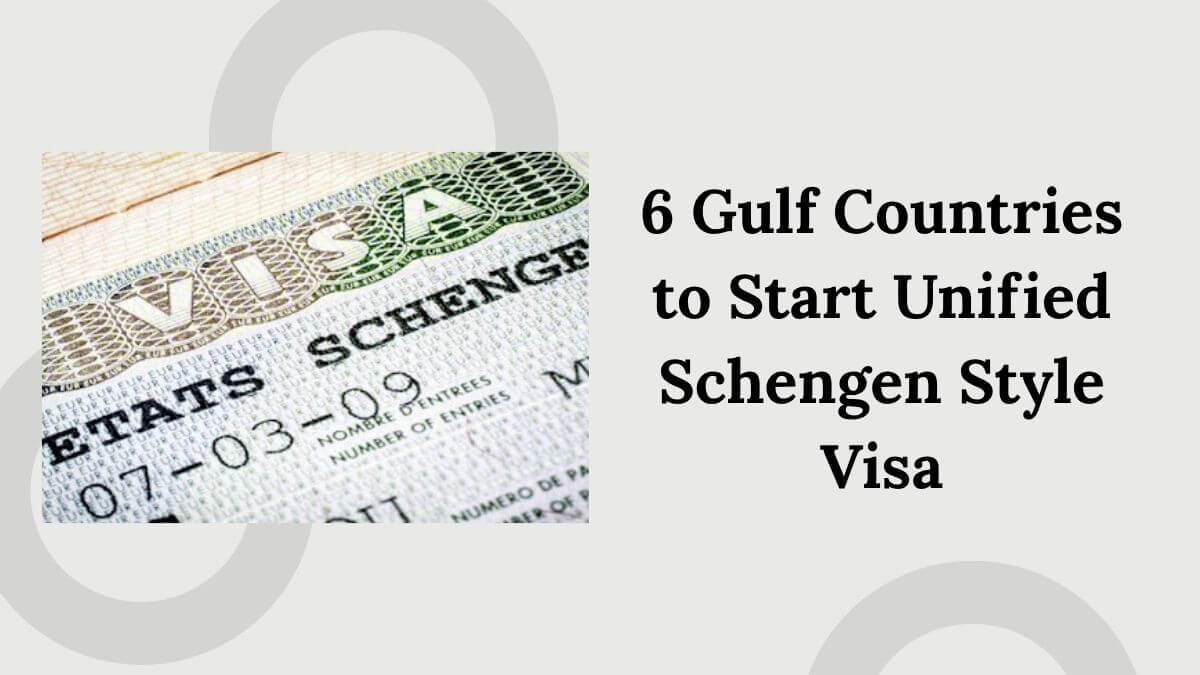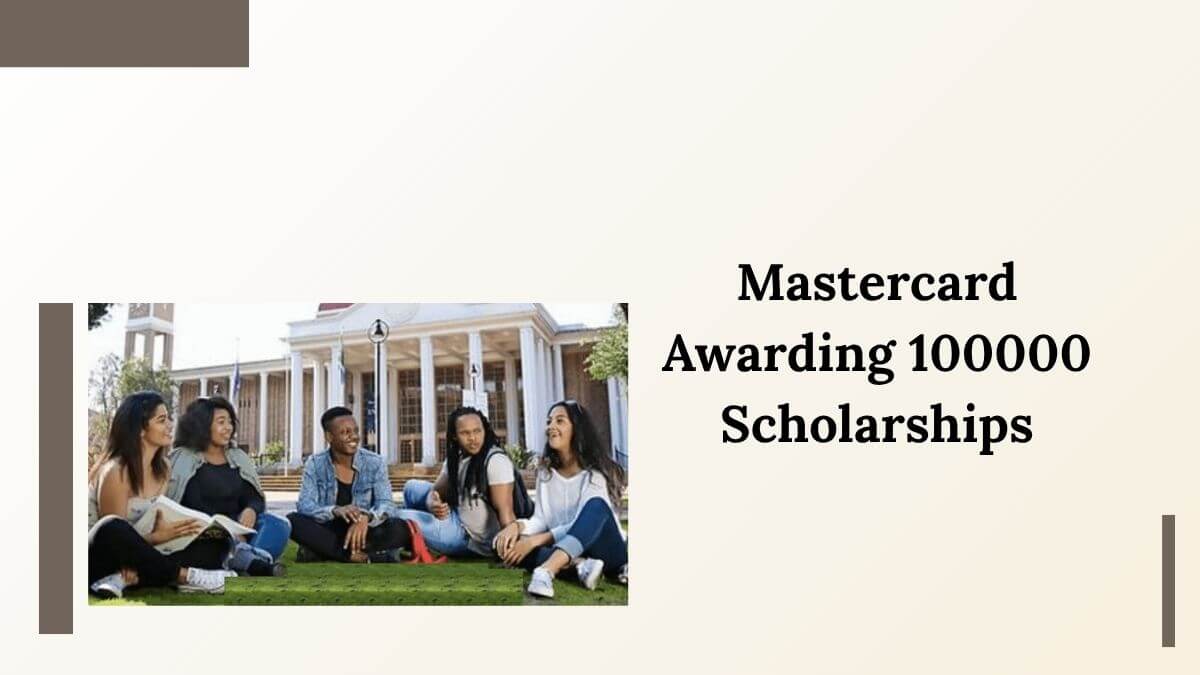English Language Requirements for Study and Work in Australia

One thing stands in the way of your dream of learning or working in Australia: showing that you can speak and write English well. Australia’s English requirements are now broader, more flexible, and clearer than ever before. This is true whether you’re looking for a Student Visa (Subclass 500), a Skilled Migration Visa, or a university scholarship.
This 2025–2026 guide goes over everything you need to know about the most up-to-date English language standards, including approved tests, minimum scores, and rules for applying for scholarships and visas.
Why Australia Requires English Proficiency for Work or Study?
In Australia, English is the main language used for school, job, and everyday conversation. Universities and the Department of Home Affairs both require applicants to show a certain level of English proficiency. This is to make sure that foreign students and workers can do well in their academic or professional settings.
The conditions change based on your goal:
- For Study: To meet the requirements for getting into college and getting a Student Visa (Subclass 500).
- For Work: To get a skilled worker or employer-sponsored visa for work (Subclass 482, 186, 189, 190, 491).
- For Scholarships: To meet the requirements for awards based on achievement or money from the government, like Australia Awards or university-specific scholarships.
Check Also: Requirements to Study in Australia on Scholarships
Major 2025 Updates to English Language Requirements:
The Australian Government released a big update on August 7, 2025, called Migration Instrument LIN 25/090. This update makes score thresholds clearer and adds more tests that are accepted.
| Policy Update | What Changed | Effective Date |
|---|---|---|
| More Approved Tests | Now nine English tests are accepted instead of the previous limited set. | 7 August 2025 |
| New Instruments | Separate instruments now define rules for Student Visa applicants (LIN 25/090) and Skilled/Work visas (LIN 25/016). | 2025 |
| Lower Pathway Program Scores | Students enrolled in approved English pathway programs can apply with slightly lower scores. | 24 May 2025 onward |
| Test Validity Period | Test results remain valid for 24 months for Student Visas and 36 months for Work Visas. | Ongoing |
List of 9 Acceptable English Proficiency Tests for Australia in 2026:
As of August 2025, the following tests can be used to apply for a Student, Skilled, or Work visa:
- IELTS (Academic or General Training; One Skill Retake allowed)
- TOEFL iBT (centre-based only; home edition not accepted)
- PTE Academic
- Cambridge C1 Advanced (CAE)
- OET (Occupational English Test)
- CELPIP General (newly added)
- LanguageCert Academic (newly added)
- Michigan English Test (MET) (newly added)
- IELTS One Skill Retake (accepted for specific cases).
English Requirements for Study Visas of Australia:
| English Test requirements | Minimum Overall Score | Minimum Band / Component |
|---|---|---|
| IELTS (Academic or General) | 6.0 | 5.5 each band |
| TOEFL iBT | 67 | L 12 R 13 W 21 S 18 |
| PTE Academic | 47 | 42 each component |
| Cambridge C1 Advanced (CAE) | 161 | none below 154 |
| OET | 1210 | across all skills |
| CELPIP General | 7 | minimum 6 each |
| LanguageCert Academic | 61 | equivalent component scores |
| MET (Michigan) | 53 | equivalent component scores |
Under LIN 25/027, students who join through approved pathway or foundation programs may be able to get in with lower requirements, usually IELTS scores between 5 and 5.
English Requirements for University Scholarship in Australia:
Each university has its own requirements, which are generally higher than the minimums for getting a visa. As an example:
- University of Melbourne: IELTS 6.5 overall (no band below 6.0) or TOEFL iBT 79 to get into the University of Melbourne.
- University of Queensland: My total IELTS score was 6.5 (6.0 on each test), my PTE score was 64, and my TOEFL iBT score was 87.
- University of Sydney: To get into the University of Sydney, you need a total IELTS score of 6.5 (6.0 on each test), or something similar.
- Flinders University: Flinders University accepts the IELTS, TOEFL, PTE, Cambridge, and DET. Each department has its own requirements.
For grants like the Australia Awards Scholarship or the Research Training Program (RTP), you need to have an IELTS score of 6.5 to 7.0 or something similar. For competitive awards, you might even need better scores.
English Test Requirements for Government Scholarships in Australia:
English skills aren’t just needed to get a visa; they can also affect your chances of getting a grant. This is how it fits in:
- Australia Awards Scholarships: At least IELTS 6.0 (or TOEFL iBT 60 or PTE 50); for graduate courses, higher scores are recommended.
- University Research Training Program (RTP): Needs IELTS 6.5–7.0 or something similar for PhD or Master by Research.
- Vice-Chancellor Scholarships: A lot of universities in Australia, like Deakin, Adelaide, and Melbourne, need you to have an IELTS score of 6.5 or better.
- Fully Funded Scholarships: International programs like Fulbright Australia and partnerships between DAAD and Australia usually need IELTS 7.0 or a similar.
If your school or visa only requires an IELTS score of 6.0, try to get a score between 6.5 and 7.0 to improve your chances of getting a scholarship.
English Requirements for Work, Skilled, and Employer-Sponsored Visa:
Australia’s skilled migration system sets five official levels of English that are linked to different types of visas.
| English Level | Visa Example | IELTS (each band) | TOEFL iBT (approx.) | PTE Academic | CELPIP | Purpose |
|---|---|---|---|---|---|---|
| Functional English | Partner / Family | 4.5 avg | 32 total | 30 overall | 5 overall | Basic communication |
| Vocational English | Subclass 482 TSS | 5.0 | L 8 R 8 W 9 S 14 | L 33 R 36 W 29 S 24 | 5 each | Operational work English |
| Competent English | Skilled Independent 189 / Employer 186 | 6.0 | L 16 R 16 W 19 S 19 | 47 each | 7 each | Minimum migration threshold |
| Proficient English | Points boost for GSM | 7.0 | L 22 R 22 W 26 S 24 | 65 each | 8–9 each | Bonus migration points |
| Superior English | Maximum points | 8.0 | L 26 R 27 W 30 S 28 | 79 each | 10 each | Highest tier for points |
For most skilled or employer-sponsored visas, you need to show that you can speak and write English well enough (IELTS 6.0 on each test). Under the General Skilled Migration plan, higher levels earn you more points.
How to Choose the Right English Test for You?
| If You’re… | Recommended Test | Reason |
|---|---|---|
| Applying to a top university (Melbourne, Sydney, ANU) | IELTS Academic / TOEFL iBT / PTE Academic | Universally recognized and accepted for scholarships |
| Applying for migration or skilled visa | IELTS General / PTE Academic / CELPIP General | Meets Department of Home Affairs visa criteria |
| Applying for healthcare programs | OET | Tailored for health professionals |
| Seeking flexible test options | LanguageCert Academic or MET | New 2025 entrants with modern digital reporting |
Frequently Asked Questions:
Which visa and study applications in Australia require proof of English proficiency?
Most of the time, you need to show proof of your English skills when looking for:
A Student Visa (Subclass 500) to study in another country.
After you finish school, you can get a Temporary Graduate Visa (Subclass 485).
work visas, like skilled visas or employer-sponsored visas (Subclasses 482, 494).Which English language tests are accepted in Australia?
For visa and college applications, Australia accepts a number of approved English tests. IELTS (Academic or General Training) and PTE Academic are the most popular. Other tests that are accepted are TOEFL iBT, OET (Occupational English Test), CELPIP General, LanguageCert Academic, and Cambridge C1 Advanced. Each test checks your reading, writing, listening, and speaking skills to get a picture of how well you understand language in general. Australian immigration officials say that all of the tests are the same, so applicants can pick the one that fits their background and level of comfort the best.
Are there any exemptions to the English language test requirement?
Yes, some individuals may not have to send in their English test scores. If you have studied in an English-speaking country or in a school taught entirely in English, you might not have to take a test. Also, people whose first language is English, like those from the UK, USA, Canada, New Zealand, or Ireland, are often excluded. Some universities will also accept proof of a long-term education or work experience where English was the main language of contact.



